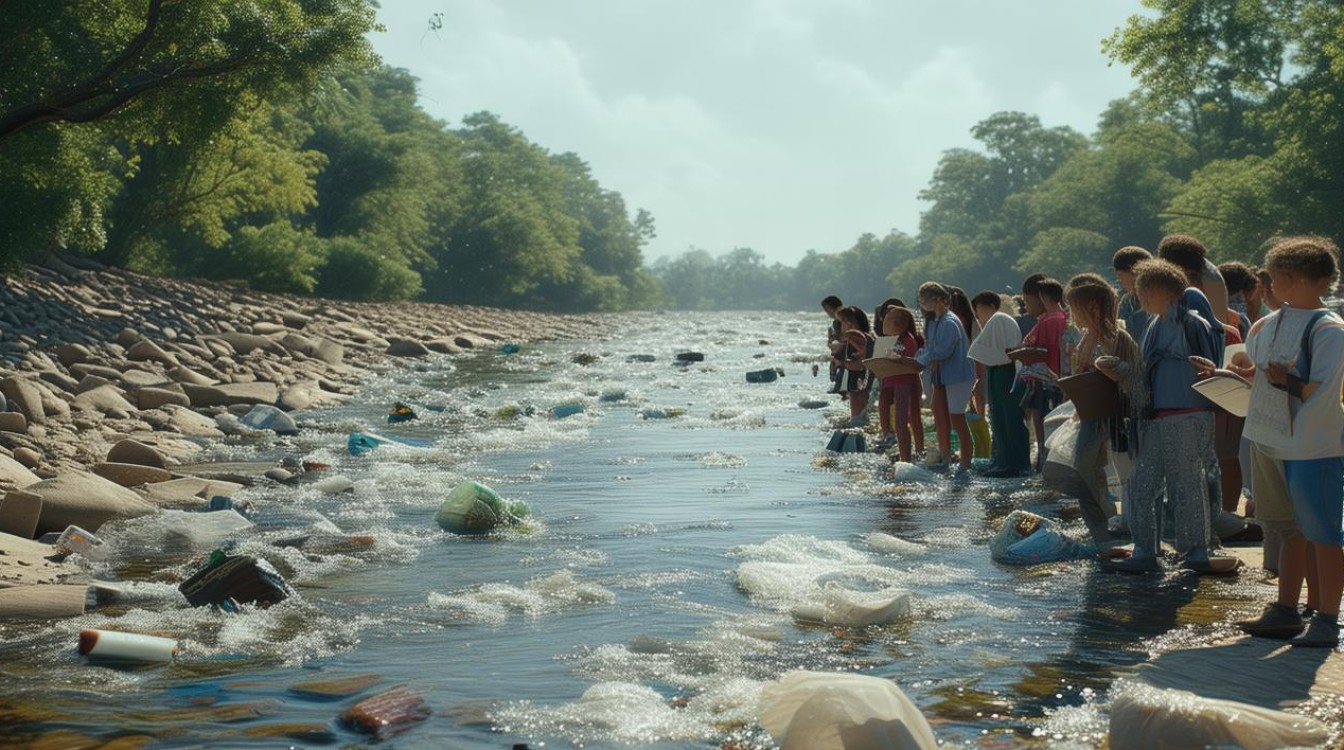Water pollution has emerged as a critical global concern, demanding urgent attention from policymakers, scientists, and citizens alike. For postgraduate exam candidates, mastering this topic in English compositions is not only academically rewarding but also essential for raising awareness about environmental degradation. This article explores the causes, effects, and solutions to water pollution while providing insights into crafting a high-scoring essay for competitive exams.

Causes of Water Pollution
Industrial waste remains a primary contributor to water contamination. Factories discharge toxic chemicals, heavy metals, and untreated effluents into rivers and lakes, disrupting aquatic ecosystems. For instance, textile industries release dyes and solvents, while mining operations introduce mercury and arsenic into water bodies.
Agricultural runoff is another significant factor. Excessive use of fertilizers and pesticides seeps into groundwater, causing eutrophication. This process depletes oxygen levels, leading to the death of marine life. Livestock farming further exacerbates the problem by releasing organic waste into waterways.
Urbanization and improper waste management also play a role. Plastic debris, household chemicals, and sewage overflow pollute rivers and oceans. In developing nations, inadequate infrastructure results in untreated wastewater entering natural water sources, posing severe health risks.
Effects of Water Pollution
The consequences of contaminated water are far-reaching. Ecologically, it disrupts biodiversity. Coral reefs, fish populations, and migratory species suffer due to habitat destruction. The Great Pacific Garbage Patch, a massive accumulation of plastic waste, exemplifies how pollution harms marine environments.

Human health is equally at risk. Consuming polluted water leads to diseases like cholera, dysentery, and hepatitis. Long-term exposure to heavy metals such as lead and cadmium causes neurological disorders and cancer. Communities relying on contaminated water sources face higher mortality rates, particularly in low-income regions.
Economically, water pollution strains resources. Governments spend billions on water treatment and healthcare. Tourism and fisheries industries decline when water bodies become unfit for recreational or commercial use. The 2019 Chennai water crisis, for example, highlighted how pollution and mismanagement can cripple a city’s economy.
Solutions to Mitigate Water Pollution
Addressing water pollution requires a multi-faceted approach. Strict enforcement of environmental regulations is crucial. Industries must adopt cleaner production techniques and treat wastewater before disposal. Countries like Germany and Singapore have set benchmarks by implementing zero-discharge policies and advanced filtration systems.
Sustainable agriculture can reduce runoff. Farmers should practice organic farming, crop rotation, and precision irrigation to minimize chemical use. Constructing wetlands as natural filters also helps absorb pollutants before they reach water bodies.

Public awareness campaigns are vital. Educating communities about waste segregation, recycling, and water conservation fosters responsible behavior. Initiatives like beach clean-ups and plastic bans, as seen in Rwanda and Kenya, demonstrate the power of collective action.
Technological innovations offer promising solutions. Solar-powered water purifiers, nanotechnology-based filters, and bioremediation techniques using microorganisms can detoxify polluted water. Researchers are also exploring AI-driven systems to monitor water quality in real time.
Writing a High-Scoring English Composition on Water Pollution
For postgraduate exam candidates, structuring an essay effectively is key. Begin with a compelling introduction, highlighting the severity of water pollution. Use statistics or a relevant quote to grab attention. For instance, "Every year, 8 million tons of plastic enter the oceans, equivalent to dumping a garbage truck every minute"—a striking fact from the United Nations Environment Programme.
In the body paragraphs, present clear arguments with evidence. Discuss causes, effects, and solutions in separate sections. Incorporate case studies, such as the Ganges River cleanup project or the Flint water crisis, to strengthen arguments. Avoid vague statements; instead, use precise data like "70% of industrial waste in developing countries is dumped untreated into water sources" (World Health Organization).

Maintain coherence with transition phrases: Furthermore, Consequently, In contrast. For lexical variety, replace common terms with advanced vocabulary—contamination instead of dirty water, detrimental instead of harmful.
Conclude with a forward-looking perspective. Emphasize individual and collective responsibility. A strong closing line could be: "Only through global cooperation and innovative solutions can we ensure clean water for future generations."
Final Thoughts
Water pollution is not an isolated issue but a symptom of broader environmental neglect. As future leaders, postgraduate students must advocate for sustainable practices and policy changes. By mastering this topic in English compositions, they contribute to a larger dialogue on preserving Earth’s most vital resource. The fight for clean water begins with awareness—and every well-argued essay brings us closer to a solution.

